- Austausch & Vernetzung
- Wissen & Lernen
- Advocacy
- Unsere Themen
Konservative Kreise weltweit greifen frontal Errungenschaften der Frauenbewegung und der LGBTQIA+-Gemeinschaften an. Damit werden nicht nur sexuelle und reproduktive Rechte, sondern auch der Kampf gegen sexuell übertragbare Krankheiten wie HIV/Aids in Frage gestellt. Die Fachtagung des Netzwerks Medicus Mundi Schweiz ruft dazu auf, diese Angriffe offen entgegenzutreten.
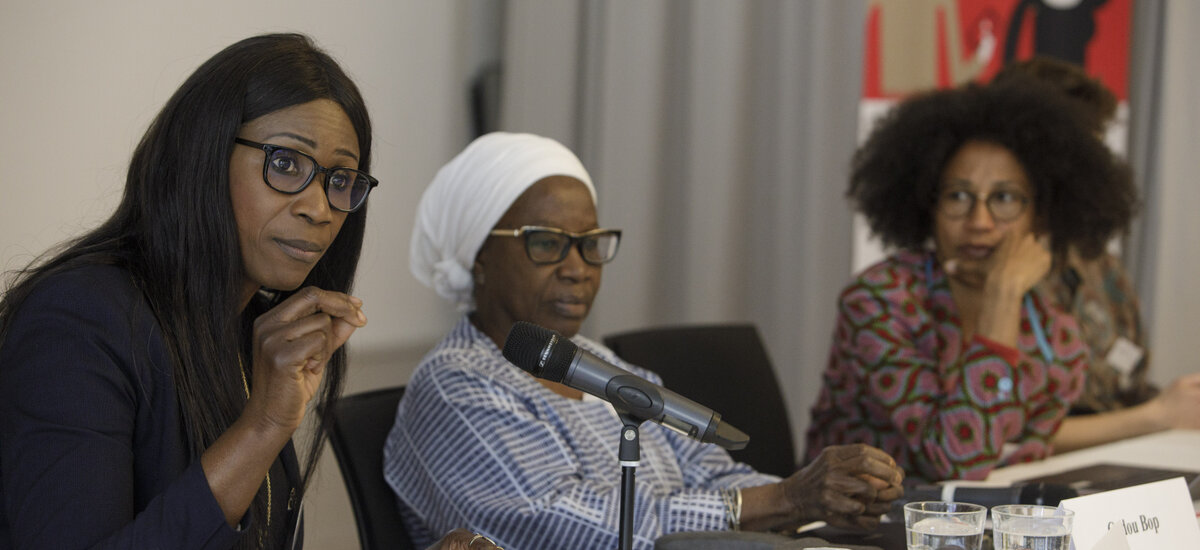
Seien es die Einschränkungen des Rechtes auf sichere Abtreibungen in den USA und Ländern Lateinamerikas, seien es homosexuellenfeindliche Gesetzgebungen wie in Uganda: Die sexuellen und reproduktiven Rechte stehen weltweit durch konservative, rechte und religiös-fundamentalistische Kräfte unter Druck. Der Angriff auf die körperliche Autonomie von Frauen und die rechtliche Diskriminierung der LGBTQIA+-Gemeinschaften sind Verstösse gegen die Menschenrechte. Sie gefährden nicht nur den sozialen Frieden in den betroffenen Gesellschaften, sondern stellen auch eine Gefahr für die Gesundheit weltweit dar.
Eine heute in Bern stattgefundene Konferenz des Netzwerks Medicus Mundi Schweiz hat sich mit den Folgen des Drucks auf die sexuellen und reproduktiven Rechte auseinandergesetzt. Dabei wurden insbesondere auch Expert:innen aus Senegal und Zimbabwe gehört, die auf die schwerwiegenden gesundheitlichen Folgen hingewiesen haben: Verschärfungen im Abtreibungsrecht treiben Frauen zu unsicheren Aborten und erhöhen die Müttersterblichkeit. Diskriminierungen von Menschen der LGBTQIA+-Gemeinschaften treiben diese an den gesellschaftlichen Rand und verhindern den Zugang zu sexuellen und reproduktiven Gesundheitsdienstleistungen, wie etwa den Präventionsangeboten zur Verhinderung von sexuell übertragbaren Krankheiten. Damit hintertreiben konservative Kreise Erfolge im Kampf gegen Krankheiten wie HIV/Aids, aber auch gegen andere übertragbare Krankheiten.
Aufgrund der verschiedenen an der Konferenz vertretenen Erfahrungen und dem Expert:innen-Wissen sind die Anwesenden zum Schluss gekommen, dass das Eintreten gegen die Anti-Genderbewegung und für das Recht auf Abtreibung und eine diskriminierungsfreie Gesellschaft durch die internationale Zusammenarbeit und in der globalen Gesundheit gestärkt werden muss. Dazu gehört insbesondere auch die Stärkung derjenigen Kräfte im globalen Süden, die sich für die sexuellen und reproduktiven Rechte engagieren. Da dies aus gesundheitlicher Sicht auch im Interesse der Schweizer Bevölkerung liegt, ist es zentral, dass sich die Schweiz international konsequent für diese Rechte engagiert.
Martin Leschhorn Strebel
Netzwerk Medicus Mundi Schweiz
E-Mail
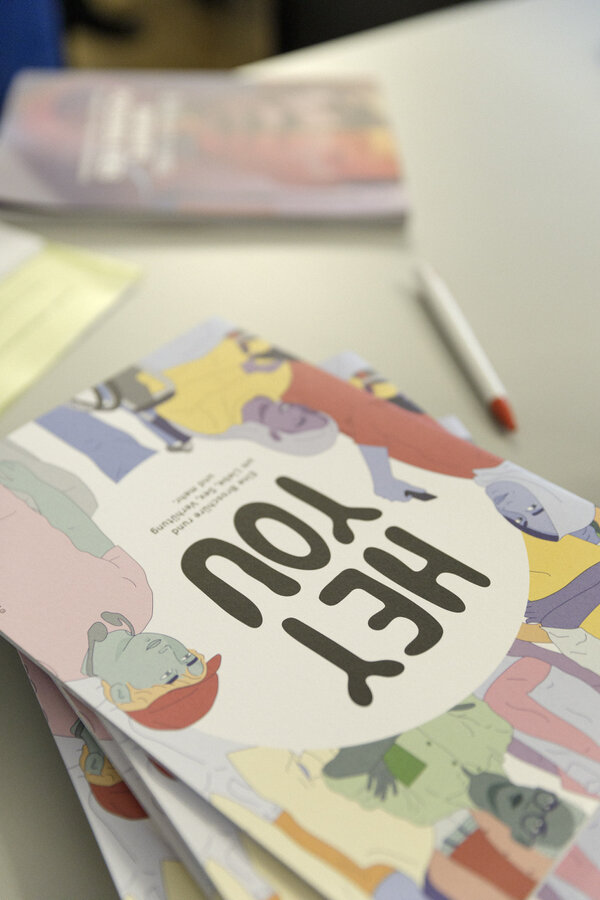
Presentations and Downloads of the MMS Conference 2023
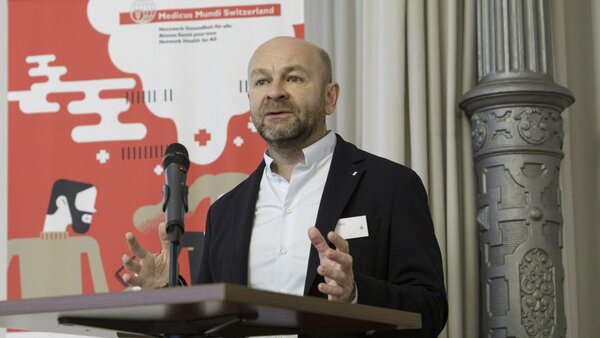
"Mr. Neil Datta, Executive Director of the European Parliamentary Forum for Sexual and Reproductive Rights (EPF), was invited to speak at the Medicus Mundi Switzerland conference on "Sexual health and rights under pressure: resistance and challenges." The conference provided a platform for participants to discuss the threats faced by sexual and reproductive rights, particularly women's right to self-determination, in various parts of the world. This event shed light on the worrying trend of religious fundamentalists and political movements mobilizing against sexual and reproductive rights, including questioning the rights of queer communities and women's right to abortion."
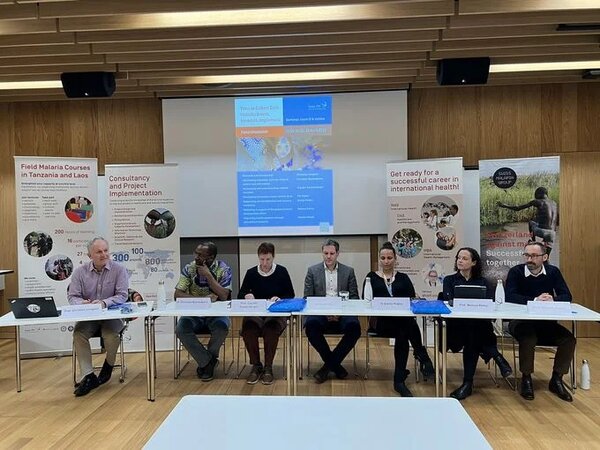
"Although malaria can be prevented and treated, global investment in the fight against the disease is declining. World Malaria Day is therefore a reminder that the goal of a malaria-free world must remain on the political agenda, both in Switzerland and on a global scale. To mark the day, Swiss TPH experts hosted a panel discussion on 25 April 2023 to discuss the current work on malaria tools and interventions and future priorities."
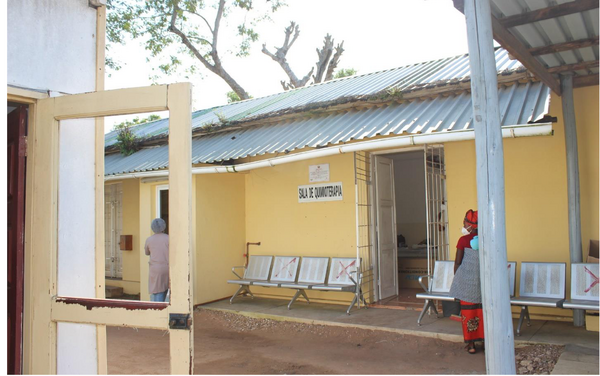
Medienmitteilung der Swiss Malaria Group zum Welt-Malaria-Tag vom 25. April 2023
Obwohl Malaria verhindert und behandelt werden könnte, gehen die globalen Investitionen im Kampf gegen die Krankheit zurück. Im Bereich der Innovationen zur Malariabekämpfung kommt der Schweiz eine Pionierrolle zu. Diese Rolle sollte das Land auch in finanzieller Hinsicht einnehmen. Der Welt-Malaria-Tag erinnert deshalb daran, dass das Ziel einer Malaria-freien Welt nicht von der politischen Agenda verschwinden darf.
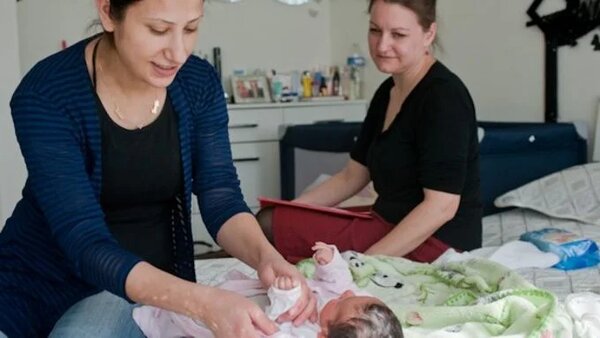
"Ein neues häusliches Hebammen-Betreuungsmodell hat sich als vielversprechend erwiesen, um das Wohlergehen von Frauen in vulnerablen Familiensituationen zu verbessern und chro-nischem frühkindlichen Stress vorzubeugen. Zu diesem Ergebnis kommt eine neue Studie, die kürzlich in der Fachzeitschrift BMC Health Services Research publiziert wurde. Das neue Be-treuungsmodell entstand aus einer Partnerschaft zwischen dem Schweizerischen Tropen- und Public Health-Institut (Swiss TPH) und Familystart beider Basel, Schweiz. Das Modell könnte für alle Schweizer Kantone angewendet werden."

"Depuis quelques années, Médecins du Monde met en oeuvre des activités de prévention de la violence à travers l'art. Les très bons résults obtenus au Benin, nous on encouragé à instaurer cette approache dans d'autres pays. La violence, qu’elle soit individuelle ou collective, auto-infligée ou dirigée contre autrui, fait plus d’un million de morts par an et bien plus encore de blessés. Elle figure parmi les principales causes de décès dans le monde pour les personnes âgées de 15 à 44 ans. À ce jour, la plupart des actions sont curatives, or l’Organisation Mondiale de la Santé insiste sur le fort besoin de mettre en place des actions de prévention de la violence au sein des communautés pour un impact pérenne."
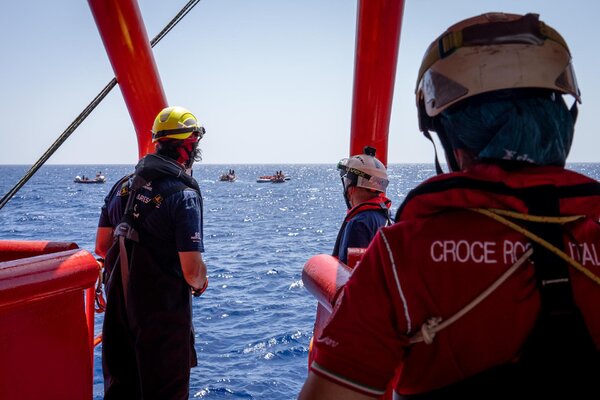
Flucht über das Mittelmeer
"Jedes Jahr überqueren tausende von Menschen das Mittelmeer. Ihre Angehörigen sind dabei oft im Ungewissen. Dank der Seenot-Rettenden der Ocean Viking und dem Suchdienst SRK fanden zwei Schwestern aus Eritrea wieder zusammen. (...) Im Winter 2022 besteigt die Eritreerin Meklit Berhe in Libyen mit über 30 anderen Personen ein seeuntaugliches Holzboot. Ihre Schwester wusste nichts davon. Meklit Berhe war insgesamt 22 Tage auf dem Mittelmeer, vier Tage auf dem Holzboot und 18 Tage auf der Ocean Viking. Als Matthias Karakus die Schwester anruft, macht sie sich bereits grosse Sorgen. Sie hatte seit zwei Wochen nichts mehr von Meklit gehört und konnte sie nicht erreichen. Sie war sehr erleichtert zu wissen, wo ihre Schwester ist."
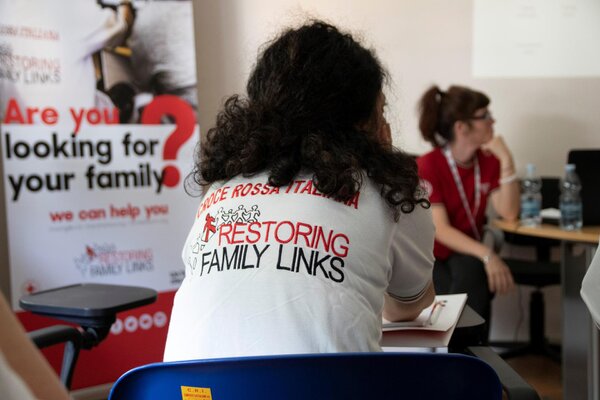
Wichtige Erkenntnisse aus der neuen Fallstudie der Fachstelle Familiennachzug SRK
"Wenn geflüchtete Menschen von ihren Familien getrennt sind, kann dies schwerwiegende Folgen haben. Die neue Fallstudie des Schweizerischen Roten Kreuzes (SRK) zum Thema Familiennachzug beleuchtet die Auswirkungen und gibt Empfehlungen an die politischen Entscheidungsträgerinnen und -träger. (...) Ein langjähriges Familiennachzugsverfahren belastet. Die Folgen können schwerwiegend sein: Von Einschränkungen im Alltag über chronische Schmerzen bis hin zu schweren psychischen Störungen."

Medienmitteilung
"Dr. Gay, ein Angebot der Aids-Hilfe Schweiz, lanciert eine neue Kampagne und rückt die Bedeutung von Verbundenheit, Zugehörigkeit und Empathie in den Fokus für die sexuelle Gesundheit. Der neuartige Präventionsansatz stärkt das Bewusstsein dafür, dass emotionale Nähe und zwischenmenschliche Beziehungen eine wesentliche Voraussetzung für die Sorge um die eigene Gesundheit und damit auch ein zentraler Pfeiler für die HIV/STI-Prävention sind. Im Dezember 2022 hat der Bundesrat die erste umfassende Studie zum Gesundheitszustand von LGBT-Personen in der Schweiz veröffentlicht. Die Ergebnisse sind ernüchternd: In vielen Bereichen existieren gesundheitliche Ungleichheiten zwischen LGBT-Personen und der übrigen Bevölkerung."

"Von Bethlehem in die USA und zurück – um «etwas Gutes für meine Heimat» zu tun: Christine Hazboun Saca leitet seit Oktober 2016 die Finanzen des Kinderspitals Bethlehem. Die Doppelbelastung als Mutter von drei Söhnen meistert sie mit viel Energie und Unterstützung aus dem Kinderspital und der Familie. Ein Porträt aus Bethlehem von Andrea Krogmann."
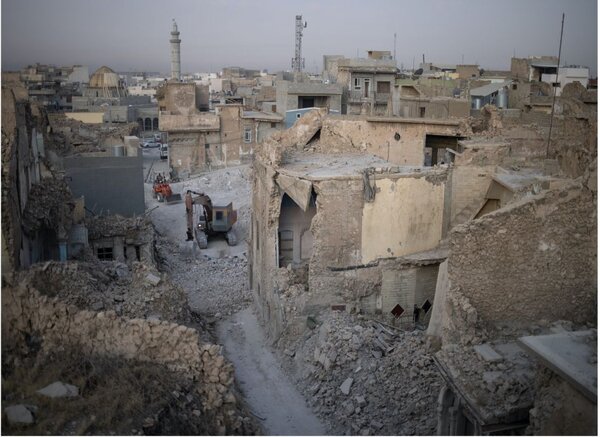
"Gemeinsam mit unseren Partnern vom International Network on Explosive Weapons (INEW) veröffentlichen wir heute den Bericht der Beobachtungsstelle für Explosivwaffen mit dem Titel: «2021–2022: Zwei Jahre zivile Opfer durch den Einsatz von Explosivwaffen». Es handelt sich um den weltweit ersten Bericht über die Bombardierung und den Beschuss von Städten. Seine Veröffentlichung erfolgt sechs Monate nach der Dublin-Konferenz, an der 83 Staaten, darunter die Schweiz, ein internationales Abkommen unterzeichneten, um den Schaden und das Leid zu beenden, das Zivilist:innen durch diese Praktiken zugefügt wird."
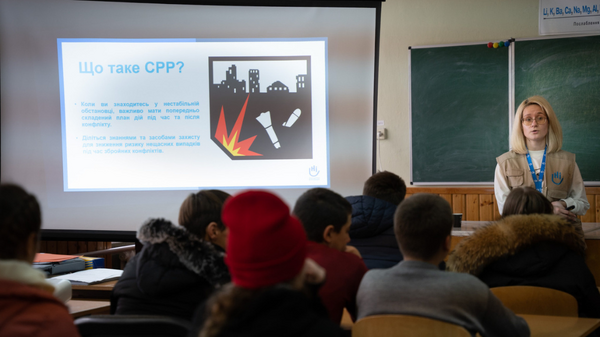
Noch immer sind mehr als 60 Länder oder Gebiete verseucht und benötigen humanitäre Minenräumung.
"Anlässlich des Internationalen Tages zur Auflkärung über die Minengefahr und zur Unterstützung von Antiminenprogrammen zieht Handicap International Bilanz über die Minenräumung im Jahr 2023, 25 Jahre nach der Unterzeichnung des Ottawa-Abkommens. Perrine Benoist, unsere Leiterin der Abteilung für die Reduzierung bewaffneter Gewalt, erläutert die Herausforderungen der Minenräumung im Jahr 2023."
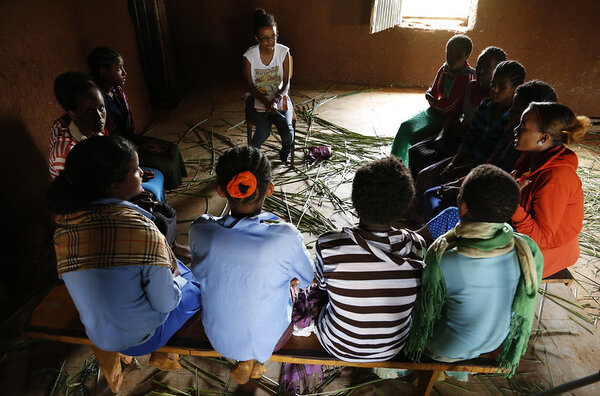
CSE empowers young people and adolescents to know their rights, make healthy choices, stay in school and flourish.
"The evidence for the many benefits of comprehensive sexuality education (CSE) – which teaches adolescents and young people about the cognitive, emotional, physical and social aspects of sexuality – is mounting. (...) Yet not all governments are investing in CSE programmes, which leaves many adolescents and young people with no access to potentially life-saving information that can help them make healthy choices about their bodies, lives and relationships."
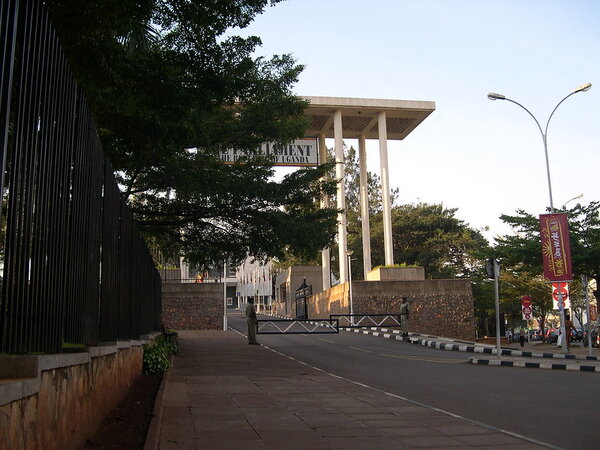
"Uganda’s Parliament passed a revised Anti-Homosexuality Bill on Tuesday, retaining executions for certain same-sex activity and introducing harsher penalties for some categories of ‘offences’. Ugandan President Yoweri Museveni had declined to sign into law an earlier version of the Bill after the Deputy Attorney General (DAG) had advised him that it would be open to various legal challenges, sending it back to Parliament to be tightened up."
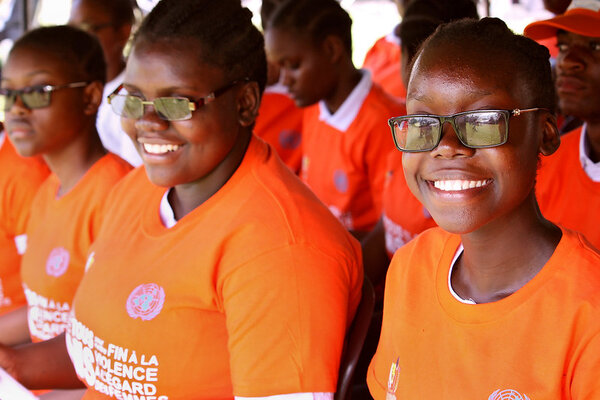
Commentary written by Venkatraman Chandra-Mouli (WHO), Kelly Van Treeck and Shatha El Nakib
"Comprehensive sexuality education (CSE) “aims to equip children and young people with knowledge, skills, attitudes and values that will empower them to: realize their health, well-being and dignity; develop respectful social and sexual relationships; consider how their choices affect their own well-being and that of others; and, understand and ensure the protection of their rights throughout their lives”. However, the implementation and scale-up of CSE programs are hampered by several challenges including deeply rooted opposition to CSE that has gained traction in recent years."
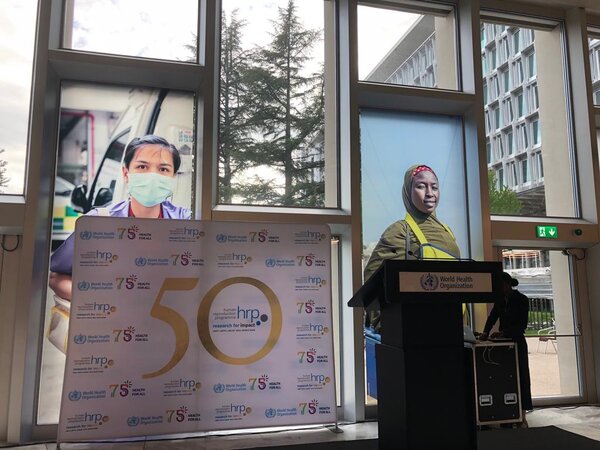
HRP is now very excited to be celebrating our 50th anniversary. With five decades of groundbreaking research, innovation and impact to commemorate, we are looking forward to a programme of activities which will also reveal our future priorities and the impact we intend to make.
"In the same year that WHO is celebrating its 75th anniversary, HRP (the UNDP/UNFPA/ UNICEF/WHO/World Bank Special Programme of Research, Development and Research Training in Human Reproduction) is marking 50 years of working toward sexual and reproductive health and rights for all. Established in 1972, HRP is the main instrument within the United Nations system for research in human reproduction. (...) “What is amazing about HRP is that Member States had the foresight 50 years ago to set it up, giving the space to be able to do research on critical issues like contraceptive methods, abortion guidelines, gender-based violence, postpartum haemorrhage, safe motherhood, self-care interventions and digital technologies,” said Dr Pascale Allotey, Director of HRP and Sexual Reproductive Health and Research at WHO in a special film."
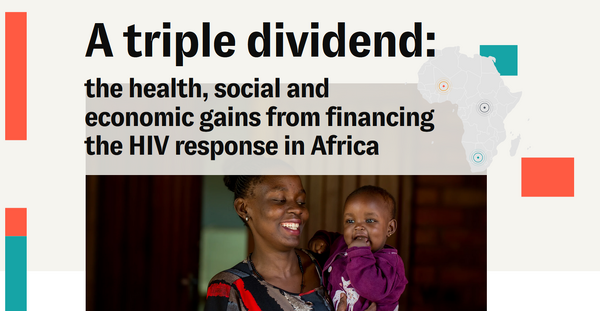
Fully financing the HIV response to get back on track to achieve the 2030 goals will produce substantial health, social and economic gains in African countries. These findings are highlighted in a new report.
"Research and analysis by Economist Impact, conducted across 13 African countries, demonstrates that fully financing the HIV response will saves millions of lives and would produce substantial health, social and economic gains. (...) “This report comes at a critical time with evidence that should act as a catalyst for political decisions to ensure full HIV funding, that will have substantial social and economic outcomes,” said Winnie Byanyima, Executive Director of UNAIDS. “It will put African countries on a path towards building more resilient healthcare systems and be better prepared for future pandemics.”
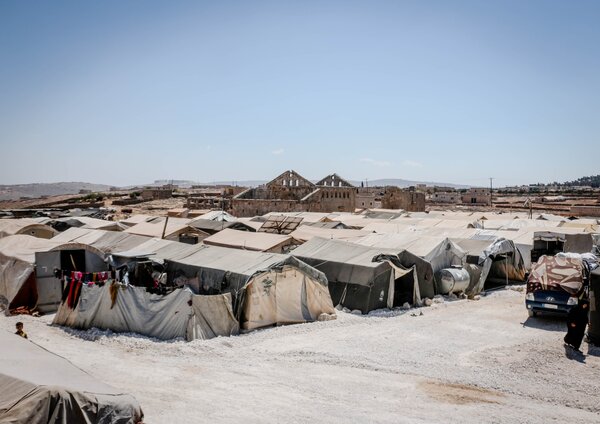
Jahresbericht 2022 der Stanley Thomas Johnson Stiftung u.a. mit einem Beitrag von Martin Leschhorn Strebel, Direktor Medicus Mundi Schweiz
"Das Fokusthema des Jahresberichts 2022 ist das Gesundheitsmanagement im Kontext von kriegerischen Auseinandersetzungen und Migration. Seit 2019 unterstützt unsere Stiftung zwei Projekte des Swiss Tropical and Public Health Institute in Flüchtlingslagern im Tschad und in Äthiopien. Dabei geht es um längerfristig angelegte Projekte, die den Einsatz von digitalen Technologien in der medizinischen Versorgung entwickeln und testen. Mit Beiträgen u.a. vom Leiter des Tropeninstituts Herrn Dr. Daniel Paris, von Martin Leschhorn, Direktor des Netzwerkes Medicus Mundi Schweiz und weiteren Fachleuten aus den Bereichen Globale Gesundheit sowie der Humanitären Hilfe und Technologie werden die aktuellen Herausforderungen in diesem Bereich beschrieben. Ausserdem berichten Pflegekräfte, Patientinnen und eine Hebamme direkt über die Situation in den Flüchtlingslagern."
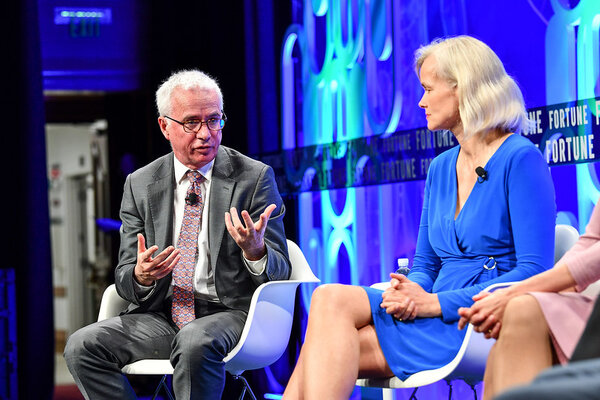
Malaria could make a comeback in the West, Peter Sands told POLITICO.
"The next pandemic could already be among us and climate change means no country is safe, said Peter Sands, head of the Global Fund, one of the world's largest funders of HIV, TB and malaria programs, in an interview with POLITICO. “Are we in a little bit of a danger of kind of fighting the last war, assuming the next threat is going to be like the one we've just experienced, when the next health crisis could actually be the impact of climate change fueling existing diseases, as opposed to some new disease X?” asked Sands, who has been executive director of the Global Fund to Fight AIDS, Tuberculosis and Malaria since 2017."
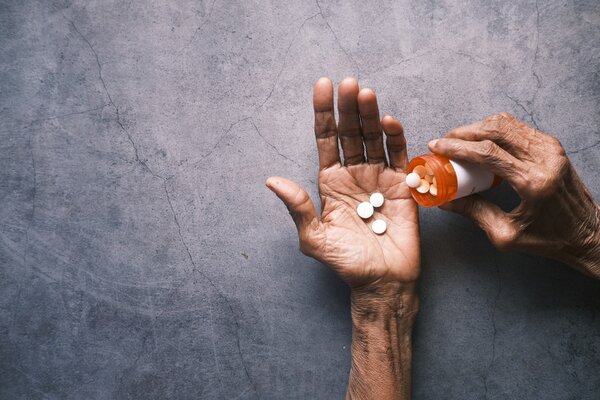
With final legislation still to be negotiated, EU member states and the European Parliament must remain vigilant that the provisions supporting access to medicines remain
"In what will be the biggest overhaul in 20 years, the European Commission (EC) today published its proposal to revise the European Union’s (EU) general pharmaceutical legislation, including provisions improving access to medicines. Médecins Sans Frontières/Doctors Without Borders (MSF) appreciates the EC proposal’s positive, precedent-setting bids to boost transparency by obliging pharmaceutical corporations to open the books on all direct public funding received for the research and development of medicines, and to improve the possibility to effectively grant compulsory licenses on medicines in the EU. However, MSF reiterates opposition to the introduction of transferable exclusivity vouchers (TEVs) for the development of antimicrobials, as they would delay generic drug production that could bring prices down to more affordable levels for people and healthcare systems."

"The World Health Organization (WHO) has launched the largest global collection of publicly available disaggregated data on health inequality, which aims to empower public health officials to conduct more targeted responses to health threats. Composed of over 11 million data points, the Health Inequality Data Repository (HIDR) is the first open-source tool to allow for the tracking of health inequalities between population groups over time."

This discussion paper aims at assessing the ability of Multilateral Development Banks (MDBs) to effectively contribute to achieving global health justice
"As the world is recovering from the COVID-19 pandemic and moving slowly but surely into the arms of a global recession – a context also marked by deteriorating macroeconomic conditions, pressure on national budgets, and a displacement of donor funds due to the war in Ukraine; the aid funding environment for global health financing in 2023 and beyond is looking preoccupying. What’s more, many countries are projected to spend less on health than their pre-pandemic levels through 2027. Considering the scarcity of existing funding for global health and keeping in mind that more financing will need to be mobilised to achieve Sustainable Development Goal n°3 on health and wellbeing, it is essential to question how existing resources are being spent – in other words looking at their efficiency, as well as ask what the best channels to leverage are for greater impact."
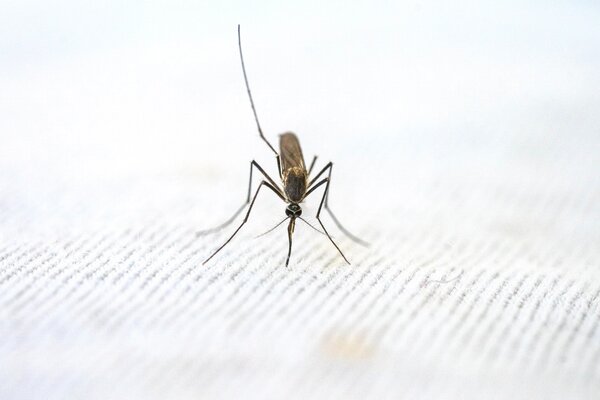
Podcast mit Claudia Daubenberger, Infektionsbiologin am Schweizerischen Tropen- und Public Health-Institut
Ghana hat als erstes Land einen neuen Malaria-Impfstoff zugelassen. Er wurde an der Universität von Oxford entwickelt und soll einen 75-prozentigen Schutz vor Malaria-Erkrankungen bieten. Der Impfstoff soll künftig bei Kindern zwischen fünf und 36 Monaten eingesetzt werden; in der Altersklasse verlaufen Infektionen besonders häufig tödlich.
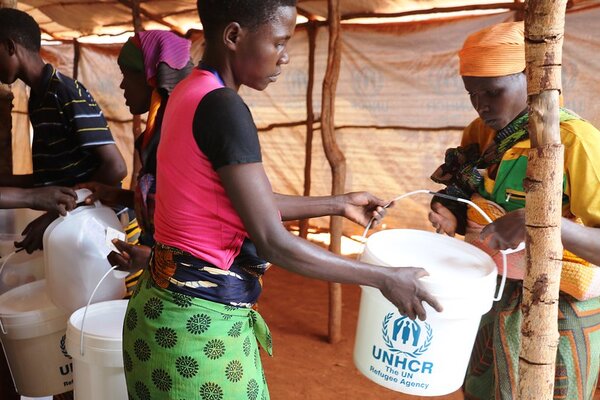
A radical proposal for development assistance for health - book review
"Olusoji Adeyi starts his book on global health with an epigraph quoting Nestor, a character in Homer’s Odyssey. In the ancient Greek epic poem, Nestor has returned home from fighting in the Trojan war and he promises to tell all of what he knows happened. From such an epigraph, it is plausible to expect that the book will recount a comparable tale of an epic war. Adeyi recently retired from a long career at senior levels of global health institutions, the last of which was at the World Bank as Director of Health, Nutrition, and Population Global Practice."
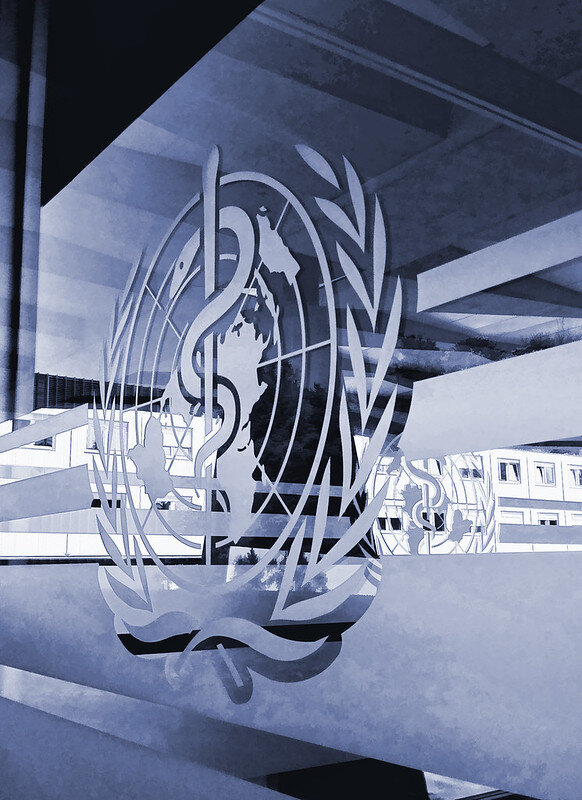
"The World Health Organization (WHO) is tasked with the ‘attainment by all peoples of the highest possible level of health’, yet, it is widely struggling to meet this mandate, and COVID-19 has revealed significant limitations of the organisation. Despite clear guidance provided by the institution as to how best to respond to the pathogen, many governments departed from WHO's guidance in their response efforts. Is this a new crisis for WHO? Does WHO need to restore its legitimacy in the eyes of the global community?-2
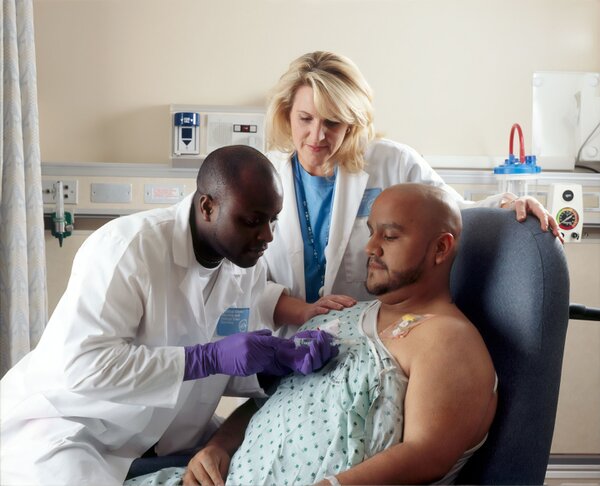
"In a jubilee year for the World Health Organization, we are still far away from achieving Health for All. For the founders of the WHO, health was “a state of complete physical, mental and social well-being”, not simply the absence of physical illness. Their vision did not translate into practice, and people are still denied this fundamental human right, simply because they live in a particular region or because they do not have money to pay for care. Activists around the world have seized the opportunity brought by this World Health Day to mobilize and point to alternative directions to take. Some of these included looking back at existing concepts, like Comprehensive Primary Health Care, which have been cast aside under neoliberal capitalism."
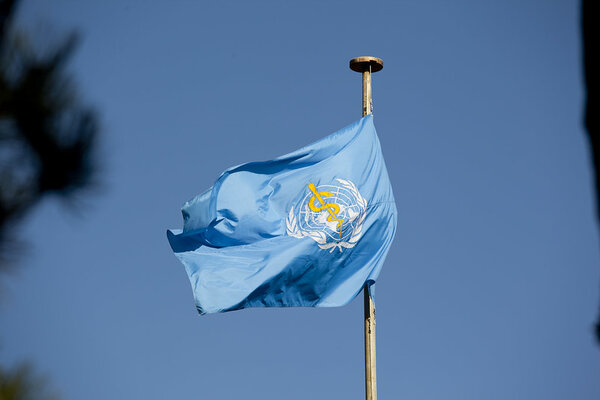
"Seventy-five years ago on Friday – World Health Day – the World Health Organization’s (WHO) founding constitution became the first document to formally recognize health as a human right. Three-quarters of a century later, a WHO battered by the COVID-19 pandemic is juggling how to adapt to new health threats with achieving its most basic mission: public health for all. “Health is a state of complete physical, mental and social well-being and not merely the absence of disease or infirmity,” reads the opening passage of the 1948 constitution, still in effect to this day."
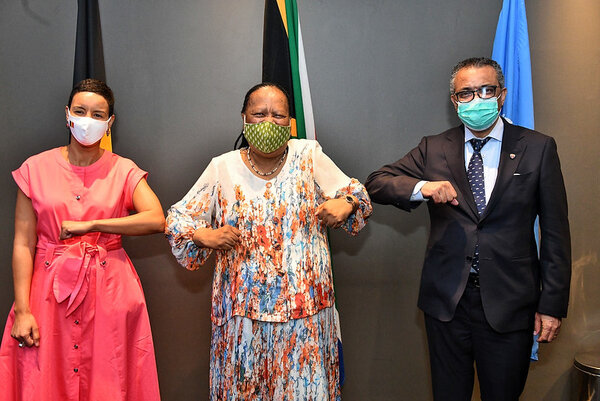
The World Health Organization is emerging from the peak of the pandemic bruised. Its member states must get back to prioritizing universal health care.
"There were times during the first year of the COVID-19 pandemic when the World Health Organization (WHO) must have felt as if it had been plunged into the middle of a heavyweight boxing match between China and the United States. China stopped its virologists and epidemiologists collaborating with their international colleagues just as researchers needed to share what they knew to understand the new virus. The United States, under then-president Donald Trump, blamed the WHO for being too close to China and attempted to punish the agency by announcing plans to withdraw funding (later reversed by the administration of current President Joe Biden)."

Der neue STOP-Bericht bietet einen aufschlussreichen Einblick in die sechs Preisstrategien, welche die Tabakindustrie einsetzt, um lebensrettende Tabaksteuern zu untergraben.
"STOP, der globale Wachhund der Tabakindustrie der Universität Bath, hat einen neuen Bericht mit dem Titel «The Price We Pay: Six Industry Pricing Strategies That Undermine Life-Saving Tobacco Taxes» veröffentlicht. Der Bericht hebt die beträchtlichen Auswirkungen des Rauchens auf die globale Gesundheit und Wirtschaft hervor und schätzt die weltweiten wirtschaftlichen Kosten des Rauchens auf über 1 Billion US-Dollar pro Jahr – grösstenteils verursacht durch Faktoren wie Gesundheitskosten, Produktivitätsverluste und vorzeitige Todesfälle. Die Autoren stellen fest, dass Rauchen die Armut und Ungleichheit verschärft, da marginalisierte Bevölkerungsgruppen unverhältnismässig stark vom Tabakkonsum betroffen sind und das Rauchen zu einer ganzen Reihe von gesundheitlichen und wirtschaftlichen Ungleichheiten beiträgt."

Medienmitteilung
"LUNGE ZÜRICH verurteilt das Angebot des Webshops «Kidz Cloudz» aufs Schärfste und hofft, dass es sich um einen schlechten Scherz handelt. Mit irreführenden Aussagen und falschen Gesundheitsversprechen wirbt Kidz Cloudz mit E-Zigaretten ohne Nikotin für Kinder und Jugendliche. (...) Mit falschen Gesundheitsversprechen wie «Asthmaprophylaxe» oder «Desinfektion der Lunge» werden Eltern dazu aufgefordert, für ihre Kinder und Jugendliche E-Zigaretten ohne Nikotin zu erwerben."
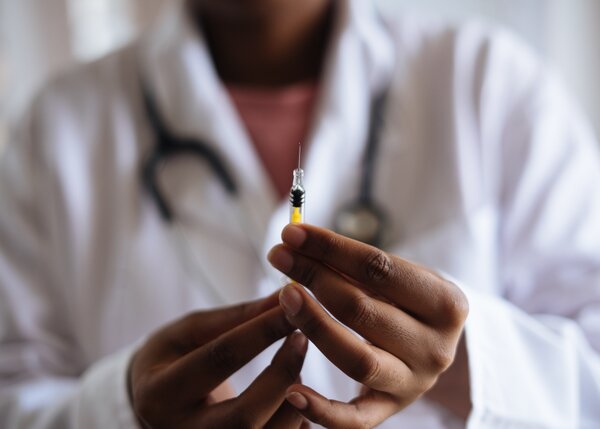
Mit einem Interview mit Martin Leschhorn Strebel, Geschäftsführer Medicus Mundi Schweiz
"Schweizer Spitäler suchen zunehmend ennet der Grenze nach Personal. Aber auch dort herrscht vielfach Mangel an Ärzten und Pflegekräften. (...) Das Kantonsspital Aarau führt Castings in Rom durch, die Privatklinikgruppe Hirslanden machte an einer Messe in Berlin Werbung für den Standort Schweiz. Auch die Unispitäler Zürich und Bern suchen ennet der Grenze nach Fachkräften. (...) Rechtlich ist das kein Problem – es gilt die Personenfreizügigkeit. Ethisch allerdings sieht es anders aus. Die Schweiz hat den WHO-Kodex zur Rekrutierung von Gesundheitspersonal unterschrieben, nach dem jedes Land Fachkräfte ausbilden und im Job halten soll. Davon sei die Schweiz weit entfernt, sagt Martin Leschhorn (53), Geschäftsführer von Medicus Mundi."
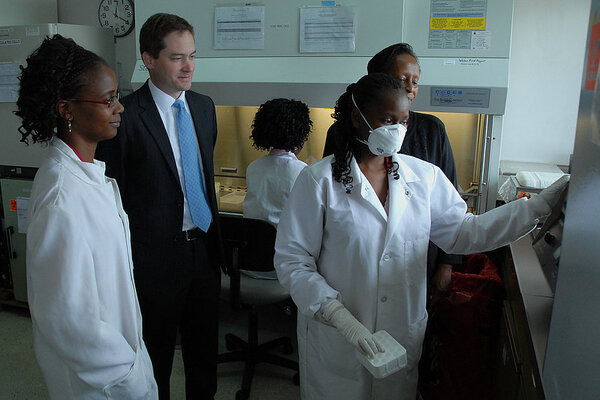
"Nigeria’s House of Representatives is considering a bill which would block young physicians from emigrating right after university. The proposal points to the widespread problem of mass emigration of health workers from the Global South. (...) Nigeria has recorded startling rates of health workers’ emigration. In the last eight years, 5,600 physicians have left the country for the United Kingdom alone. Baba Aye, Health and Social Sector Officer at Public Services International (PSI), estimates that at one point, there was a daily average of 50 doctors leaving Nigeria. The intensity of the emigration has weakened the system and pushed health care away from the reach of patients."
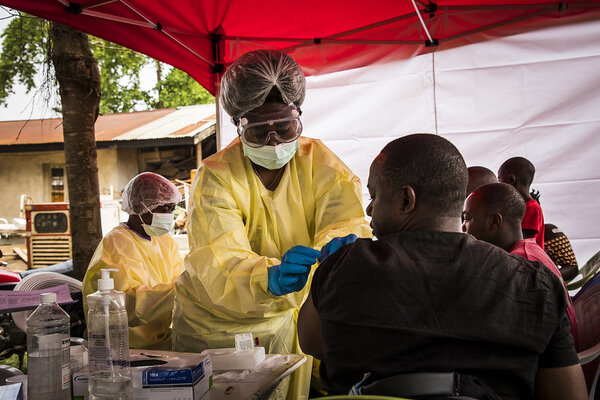
"(...) WHO should set consequences for member states who are worsening inequities by actively recruiting from red-list countries. However, the failure of HICs to deliver COVID-19 vaccine equity suggests that we should not be optimistic that they will respond fairly. Meanwhile, we should also ask: why are dedicated, expert HCWs leaving the countries that need them the most? And how can the global health community and governments tackle these reasons on a systems level to make health-care work more appealing to enter, work in, and remain in?"
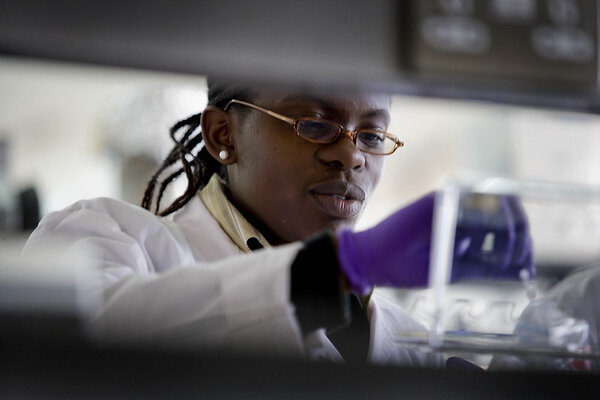
"The World Health Organization (WHO) officially launched a new mRNA vaccine technology hub in Cape Town on Thursday. The hub aims to provide a complete package of services along the entire vaccine chain, from scientific research to vaccine manufacturing and licensing. The hub is seen as a major boost for science and health infrastructure in Africa and a way to help low- and middle-income countries end their reliance on higher-income countries for vaccine development and shipments."
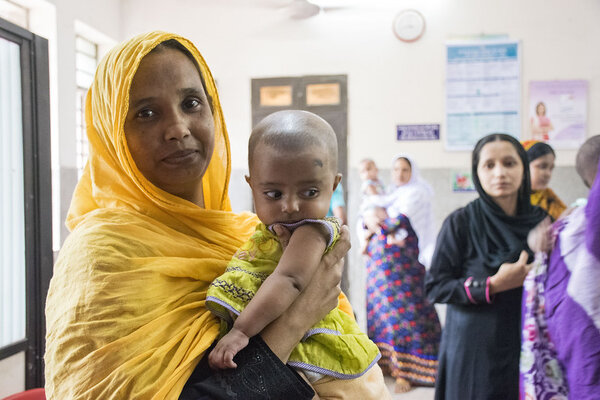
Fourth Global Pulse survey report released by WHO
"Three years after the COVID-19 pandemic began, health systems across the world are showing signs of recovery from its negative impact, with fewer countries reporting on scaling back delivery of essential health services as compared with 2020-21. Disruptions to the delivery of essential health services had almost halved by the end of 2022 when compared with the same period in 2021."
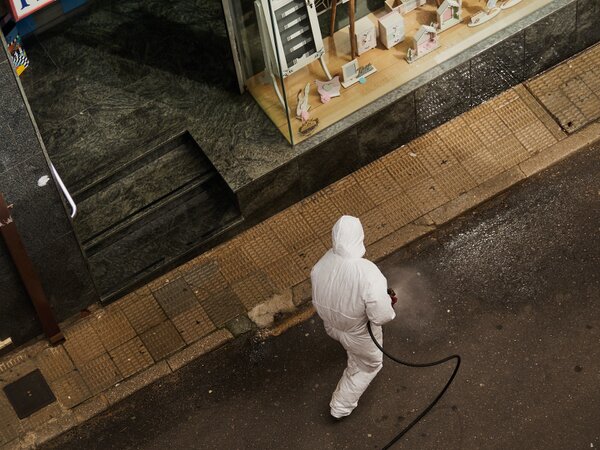
"As the current US Senate is unlikely to ratify a pandemic accord, it might make more sense for World Health Organization (WHO) member states to invest more effort in ensuring that the International Health Regulations (IHR) are adapted to respond to the next pandemic. So suggested Daniel Warner, Assistant Director for International Affairs at the Geneva Centre for the Democratic Control of Armed Forces (DCAF) at an event hosted by the Geneva Graduate Institute’s Global Health Centre."

SCNAT Commission for Research Partnerships with Developing Countries (KFPE) "On May 5th 2023, the KFPE holds its annual conference in collaboration with the SUDAC and SOR4D programmes. This year's focus lies on processes of decolonizing research partnerships. (...) Demands to decolonize relationships, practices and knowledge have increased in the last years. These demands have been raised due to persisting prejudice, repression and inequalities rooted in colonial legacy, and they touch all spheres of society, including science."
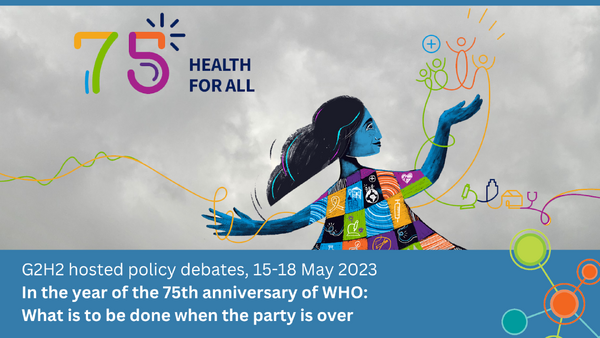
Geneva Global Health Hub (G2H2) "In the year of the 75th Anniversary of the World Health Organization, and in the week before the 76th World Health Assembly (WHA76), a series of public policy debates hosted by the Geneva Global Health Hub (G2H2) and organized by some of its members will again provide a space for sharing, assessing and debating health policy and governance challenges that go beyond the items covered by the formal agenda of the WHA, bridging from health policies to people’s realities, addressing determinants of health and promoting democratic governance."
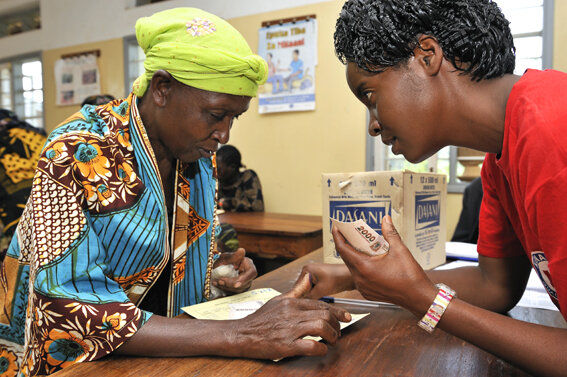
Medicus Mundi Switzerland International health cooperation has a very strong focus on younger people and there is a strong, well-founded call to involve the younger generation more in programme development. However, there is also another reality: the population in the Global South is getting older and the older population itself is also getting older. The MMS Round Table would like to look at whether the actors in international health cooperation are also making their programmes adapted to the needs of older people. And it would like to show which tools, projects and programmes can use to face this trend. An important discussion in the context of the UN Decade of Healthy Ageing.
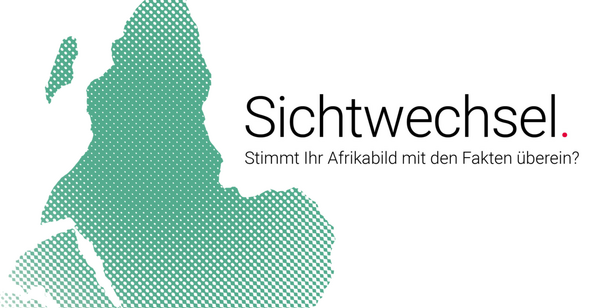
SolidarMed "Krieg, Hunger, Krankheit, Armut und Elend. Oft dominieren negative Schlagzeilen und Geschichten die Berichterstattung über afrikanische Länder und übersehen dabei die Fakten zu den positiven Entwicklungen auf dem afrikanischen Kontinent. Benötigt Ihr Afrikabild eine Generalüberholung?" Referat mit anschliessender Diskussion.
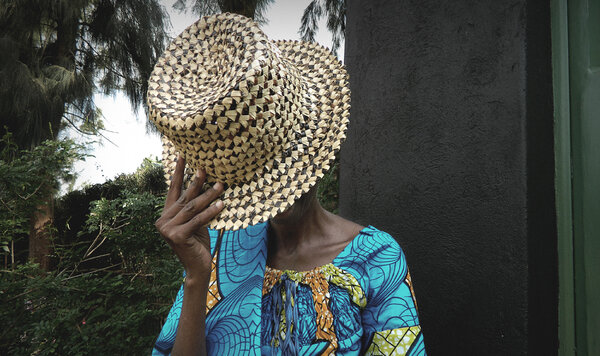
Medicus Mundi Suisse L’OMS définit la santé mentale comme un « état de bien-être qui permet à chacun de réaliser son potentiel, de faire face aux difficultés normales de la vie, de travailler avec succès et de manière productive, et d'être en mesure d'apporter une contribution à la communauté ». (...) La pandémie de Covid-19 a fortement mis en évidence les inégalités existantes, en particulier la pauvreté comme facteur puissant minant la santé mentale à court et à long terme. C'est pourquoi la politique de santé publique et mentale doit être globale, intersectorielle et transculturelle, et prendre en compte de nombreux facteurs liés à la santé au-delà des simples aspects individuels et des systèmes de santé.